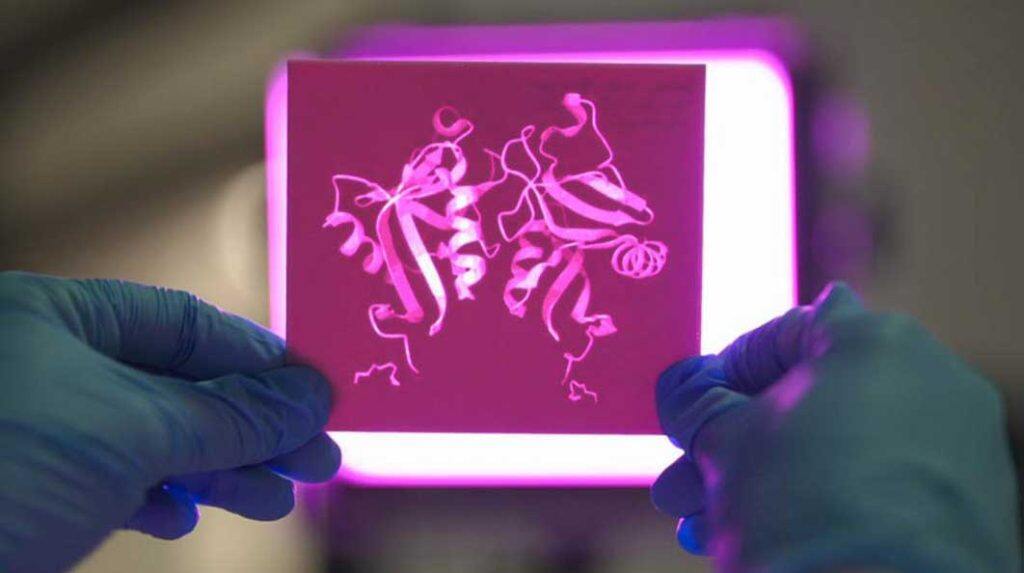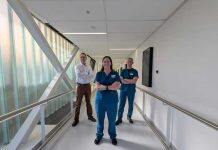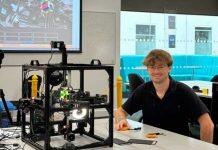A protein in the immune system programmed to protect the body from fungal infections is also responsible for exacerbating the severity of autoimmune diseases such as irritable bowel disease (IBS), type 1 diabetes, eczema and other chronic disorders, new research from The Australian National University (ANU) has found.


The discovery could pave the way for new and more effective drugs, without the nasty side effects of existing treatments, offering new hope to more than one million Australians who suffer from some form of autoimmune disease.
In addition to helping to manage severe autoimmune conditions, the breakthrough could also help treat all types of cancer.
The scientists have discovered a previously unknown function of the protein, known as DECTIN-1, which in its mutated state limits the production of T regulatory cells or so-called ‘guardian’ cells in the immune system.
These guardian cells are crucial to preventing autoimmune disease because they suppress the effects of a hyperactive immune system, which can be extremely dangerous if not properly regulated.
The immune system is designed to protect the body from infection, but in severe cases it becomes overactivated and turns the body’s natural defences against itself.
“When this happens, the immune system wrongly perceives healthy cells as a threat, causing it to attack the body and promote the onset of autoimmune disease,” lead author Dr Cynthia Turnbull, from ANU, said.
“Although the DECTIN-1 protein helps to fight fungal infections, in its mutated state it’s also responsible for exacerbating severe autoimmune disease.
“Understanding how and why the mutated version of this protein causes autoimmunity in patients brings us a step closer to developing more effective drugs.”
The scientists believe they can control the immune system by turning the DECTIN-1 protein on and off, like a light switch.
“Turning on the protein would lower the intensity of the immune system’s defensive response which would help to treat conditions such as autoimmune disease,” Professor Carola Vinuesa, from the Francis Crick Institute, said.
“On the other hand, turning off the protein could give the immune system a boost, sending its defensive mechanisms into overdrive and allowing the body to treat an entirely different set of diseases.
“The findings are exciting because there haven’t been many discoveries of so-called modifier proteins such as DECTIN-1, which can change the way the immune system behaves to the extent it can either cause a disease or prevent it.”
According to Dr Turnbull, this means DECTIN-1 could play a key role in treating cancer.
“Cancer cells can disguise themselves by releasing certain proteins and chemicals into the body that essentially render them invisible from the immune system’s natural defences,” she said.
“We think that by using drugs to turn off the DECTIN-1 protein, in combination with existing therapies, we can activate the immune system and help it identify and attack the cancerous cells.”
Current treatments for autoimmune disease aren’t very effective and have a lot of damaging side effects. This is because the majority of existing treatments suppress the entire immune system rather than targeting a specific area.
“That means it might not fix the exact problem behind the patient’s disease and could inadvertently make them vulnerable to infections. Many people on these kinds of treatments also get bacterial, fungal and viral infections which can make their autoimmunity worse,” Professor Vinuesa said.
By examining the DNA of a Spanish family, the researchers discovered the DECTIN-1 mutation was responsible for exacerbating the severity of a chronic autoimmune disease suffered by the family’s only child.
“We found the family was also carrying a mutated version of another immune system protein known as CTLA-4. The CTLA-4 mutation prevents guardian cells from working properly and is known to cause severe autoimmune disease in about 60 to 70 per cent of people who carry it in their DNA,” Dr Pablo Canete, from The University of Queensland, said.
“Strangely, the remaining 30 to 40 per cent of the population who carry this mutated protein don’t develop disease.
“We discovered the family’s only child had both the DECTIN-1 mutation and the CTLA-4 mutation, while his parents had only one of each. This helped us identify why the child, who is now in his twenties, was the only person in the family to develop severe autoimmunity, ending a 20-year-long mystery behind the cause of his disease.
“By discovering the existence of mutated versions of modifier proteins such as DECTIN-1, we finally have an explanation for why some people develop severe autoimmune diseases while others don’t, even if they inherit gene mutations passed down from family members.”
The research is published in Science Advances. It was led by ANU in collaboration with The University of Queensland and the Francis Crick Institute.







































